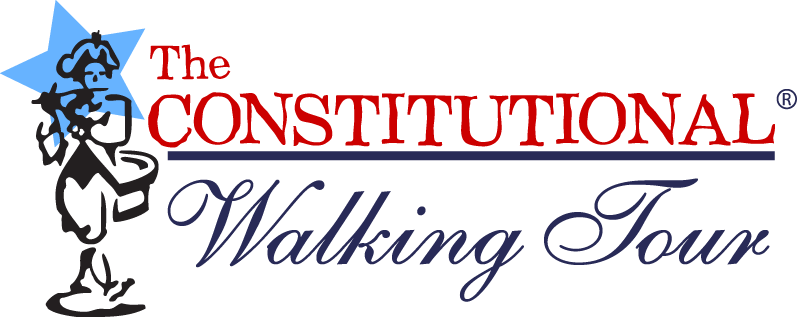Related Posts
- Buy Tickets for The Constitutional Walking Tour of Philadelphia – See 20+ Sites on a Primary Overview of Independence Park, including the Liberty Bell and Independence Hall
- Independence Hall
- Signers' Garden
- Signers' Walk
- First Continental Congress
- Carpenters' Hall
- Second Continental Congress
- Congress Hall
- Constitutional Convention
Birth: September 16, 1722
Death: October 2, 1803 (age 81)
Colony: Massachusetts
Occupation: Businessman, Merchant, Politician
Significance: Signed The Declaration of Independence (at the age of 53); and served as the Governor of Massachusetts (1794-1797)

Samuel Adams was one of the Founding Fathers of the United States. Born in Massachusetts to a devout Puritan family, Adams was one of 12 children, though one of only three Adams children to live to at least the age of four.
Adams' father was a church deacon and successful merchant, and his second cousin John Adams was a fellow Founding Father and the second President of the United States. Adams was educated at Boston Latin School, a famous early Boston school that was also attended by other Founding Fathers such as Benjamin Franklin. Adams then attended Harvard where he graduated in 1740 and earned his Masters in 1743. Adams was a fierce defender of Colonial rights and grew to have a strong disdain for Britain from a young age when Parliament dissolved a bank that his father had chartered which threw the Adams family into debt and financial ruin.
Adams tried his hand at numerous business ventures including a business involved in the production of malt for beer, which led to Adams becoming the namesake of Samuel Adams Boston Lager two centuries later. But Adams was an unsuccessful businessman and was always too preoccupied with politics. Adams was a very early critic of England and what he viewed as their overreach in Colonial affairs, as he published critical essays of England dating back to 1748, a decade and a half before such criticisms became more common in the aftermath of the French and Indian War.
By the time the British Parliament imposed the Sugar Tax on the American Colonies in 1763 to recoup costs for the French and Indian War, Adams was already leading the charge against "taxation without representation." Following the Stamp Act in 1765, Adams founded the Sons of Liberty, an informal organization of colonists committed to fighting against British overreach and interference. In 1766, Adams was elected to the Massachusetts House of Representatives, a position which he held until 1774.
As tensions grew, Adams was a key figure in Boston as a series of events pushed Massachusetts to the brink of war. First, in 1770 Adams was accused by some of inciting the riot that led to the Boston Massacre. Then in 1773, it was speculated that Adams had been the driving force behind the Boston Tea Party. When Britain responded with the Coercive Acts in 1774, Adams led the charge in protesting these.
In 1774, Adams was voted as one Massachusetts' representatives to the First Continental Congress. At the First Continental Congress, Adams successfully pushed for actions such as a boycott on British goods and a Declaration of Rights. The following year in 1775, Adams was elected to represent Massachusetts in the Second Continental Congress. However, before Adams left for Philadelphia, the Battles of Lexington and Concord broke out and Boston fell into chaos.
While the British offered to pardon any Massachusetts citizen who laid down their arms, Samuel Adams and John Hancock were singled out as being ineligible for such pardons. Adams fled to Philadelphia fearing that he would be executed if captured by the British. Once he arrived in Philadelphia, Adams strongly pushed for Independence, voted for Independence and signed The Declaration of Independence. After signing The Declaration of Independence on August 2, 1776, Adams continued to serve in the Continental Congress until 1779. While in the Continental Congress, Adams was one of the primary authors of the Articles of Confederation, the framework creating the United States' first national government.
Back in Boston, Adams was elected to the Massachusetts Senate. While initially critical of the Constitution of the United States, Adams eventually supported the U.S. Constitution and following its ratification, Adams was elected as the Lieutenant Governor of Massachusetts in 1789. Adams served under Governor John Hancock until 1793 when he succeeded Hancock as Governor following his death. Adams remained Governor until 1797 when he retired from politics. Adams died in 1803 at the age of 81.
Samuel Adams in Philadelphia
Adams arrived in Philadelphia for the first time in 1774 as a delegate to the First Continental Congress which met at Carpenter's Hall. In 1775, he returned as a delegate to the Second Continental Congress. While serving as a member of the Second Continental Congress, Adams worked at Independence Hall, and he signed The Declaration of Independence.
A plaque commemorating Adams for signing The Declaration of Independence can be found on Signers' Walk on the 600 block of Chestnut Street (between 5th and 6th Streets). Signers' Garden pays tribute to the Founding Fathers, including those such as Adams who signed The Declaration of Independence. Carpenter's Hall, Independence Hall, Signers' Walk, and Signers' Garden are all stops visited along The Constitutional Walking Tour!



